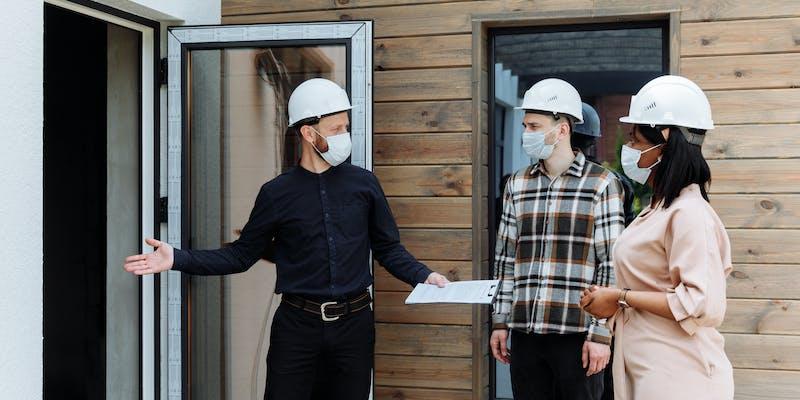
Purchasing a home is an exhilarating journey, yet many prospective buyers don't fully grasp its complexities. A knowledgeable real estate agent is invaluable, but you must also do your research and preparation.
We have eight crucial questions to ask the seller of a house you like. Without answering these questions, you can't understand the home-buying process, choose the right time, or meet the requirements to buy a house. You can make a smart home purchase decision by gathering information.
What Should Be Your Total Home-Buying Budget?
Before you start exploring potential homes, it’s essential to establish your financial limits. Purchasing a house involves more than just the property's price tag. You'll need to consider ongoing costs such as property taxes, homeowners insurance, regular upkeep, and potential renovations.
Wendy Mays, a real estate professional with eXp Realty of California, emphasizes that the true financial impact of homeownership, including unexpected expenses like repairs and homeowner's association fees, may not be apparent for years.
Proving your financial readiness is crucial to compelling a house offer. This is where mortgage preapproval becomes a significant step in the home-buying process. Joey Sampaga, a Realtor with Realty ONE Group in Arizona, points out that preapproval clarifies your budget and reassures the realtor and the seller of your serious intent.
By getting preapproved, you demonstrate that you are a serious buyer, respecting the seller's time and the real estate process. This step aligns with the essential requirements to buy a house and is a critical part of the steps to buy a house.
What Are The Potential Risks in a Property?

Before buying a house, ask about safety and insurance claims. Lead paint, radon, and mold require costly remediation and delay loan approval—request documentation of previous fixes. Consider specialized testing if you suspect hazards or a home inspector recommends it.
This process benefits from the CLUE report. You should request this report from the seller to see any homeowners insurance claims in the past seven years. It reveals weather and vandalism damage that a home inspection or seller's disclosures may miss.
In general, sellers must disclose known defects. However, hidden issues can cause significant problems. Obtaining a professional home inspection immediately after signing a purchase agreement is crucial. The inspection report shows the home's condition and helps you negotiate repairs or credits before closing. If the house has many issues and you've included an appraisal contingency in your offer, you can cancel without penalty and usually get your earnest deposit.
What Types of Neighbors Would You Have?
Getting a true sense of a neighborhood before moving in is challenging but essential. Ask the seller about the type of neighbors and the overall atmosphere of the area - whether it's quiet or noisy, sociable or private, pet-friendly, and so forth.
However, don't rely solely on the seller's perspective. It's advisable to explore the neighborhood personally. Engaging with neighbors can provide valuable insights about the community that a seller might not disclose.
Remember, while you can modify a house, the neighborhood remains constant. Thus, ensuring that you appreciate the locality is vital. A Realtor can assist you in gathering critical information like community amenities, crime rates, school quality, and traffic conditions.
The internet is another excellent resource for researching schools, homeowners association rules, nearby parks, and other local features. Additionally, consider timing your commute to work, as a lengthy commute could be a deciding factor.
Would You Need Any Significant Renovations or Repairs?
When looking at a house, aligning the information you see in records with what's present is crucial. Sometimes, a house advertised with four bedrooms may have a room that doesn't comply with local codes.
It's vital to ask about any significant repairs or changes the seller has made. This knowledge lets you judge the house's condition accurately and understand why it's priced a certain way. This step is integral to the process when you learn the steps to buy a house.
What is The Age of the Roof, Appliances, and Major Systems?

Roofs are essential but can be costly to replace. If a roof is near the end of its life, you might have to spend a lot to replace it soon after buying the house. Sometimes, lenders even require roof repairs for loan approval.
Always ask for the roof's age to avoid expensive surprises. Also, check the age and warranties of major appliances and systems like the air conditioner, furnace, water heater, and kitchen appliances.
Knowing their lifespan helps you plan for future expenses. This inquiry is part of the requirements to buy a house and the steps to buy a house, ensuring you're fully informed.
How Long the House Has Been on the Market?
The time a house has been for sale can affect the seller's willingness to negotiate. Homes that have been on the market longer often have sellers more open to negotiating on price, terms, and even allowances for updates like carpet replacement.
A house on the market for too long may lose appeal, especially with price cuts. You can negotiate a better deal. Understanding these dynamics can indicate seller flexibility, making it helpful when finding the best time to buy a house and the steps to buy a house.
What Are The Natural Disaster Risks in The Potential Home?
Check if your future home is in a flood or natural disaster zone. FEMA-designated high-risk flood zones require separate flood insurance from homeowners insurance. This is especially important if you're considering a house in California or other earthquake-prone areas that need earthquake insurance.
A homeowners insurance policy covering total rebuilding costs in a major disaster is also recommended. Underinsurance can result in high repair and rebuilding costs. When considering the best time to buy a house in natural disaster-prone areas, staying informed and ensuring adequate insurance coverage are crucial.
What's Included in The Home Purchase?
You must know what comes with the house you buy. Cabinets, appliances, built-ins, and window treatments are usually sold. However, your expectations may differ from the deal. State laws define fixtures differently.
Make sure your purchase offer clarifies what's included to avoid confusion. If you want the washer/dryer or a light fixture, ensure they're included. Clear communication on these details is crucial to buying a house, affecting your expectations and the final agreement.











